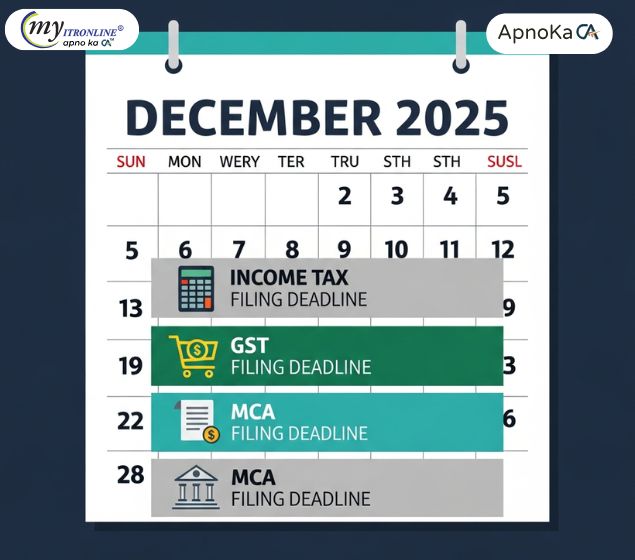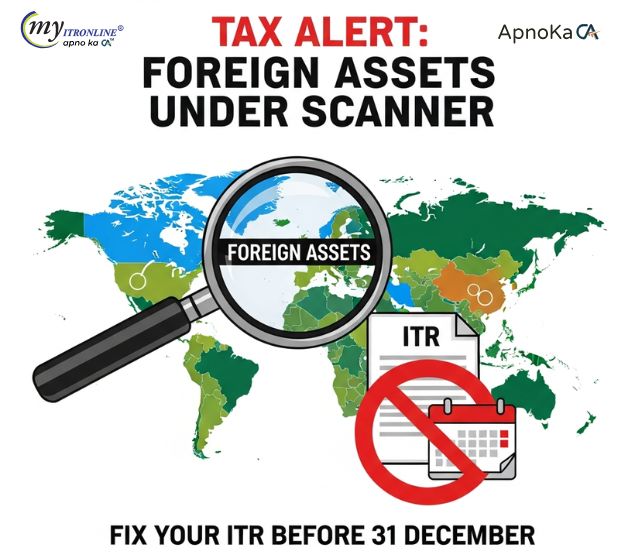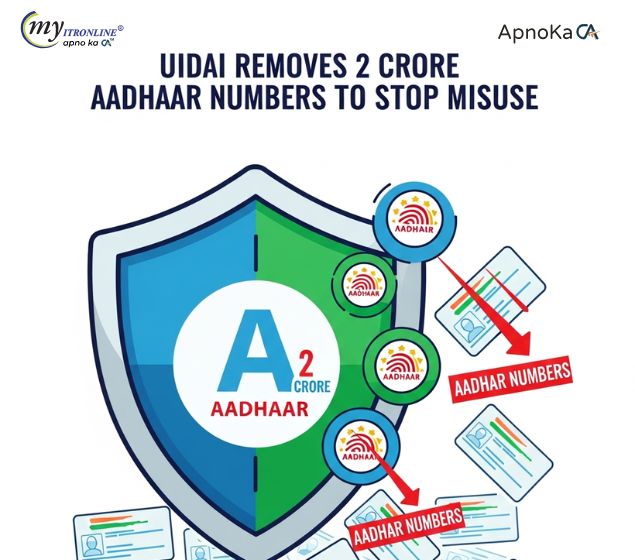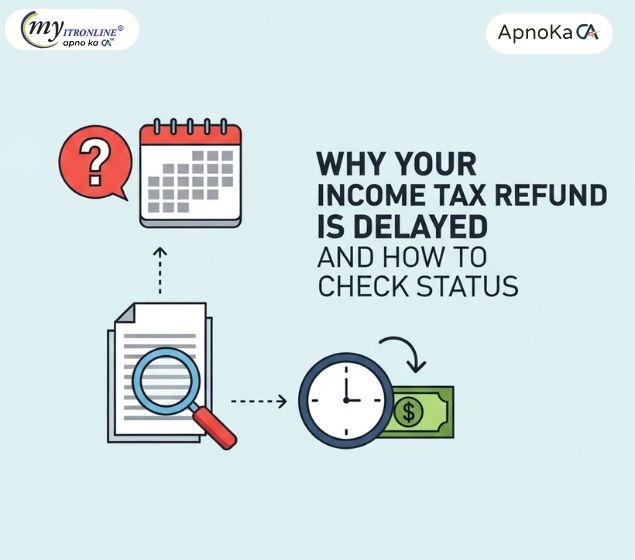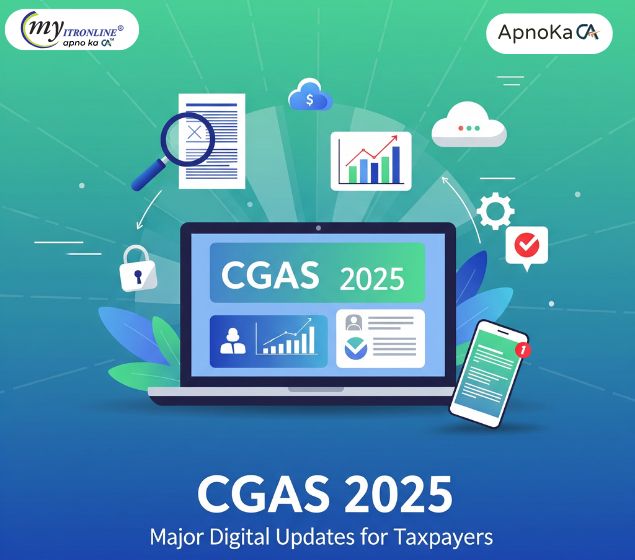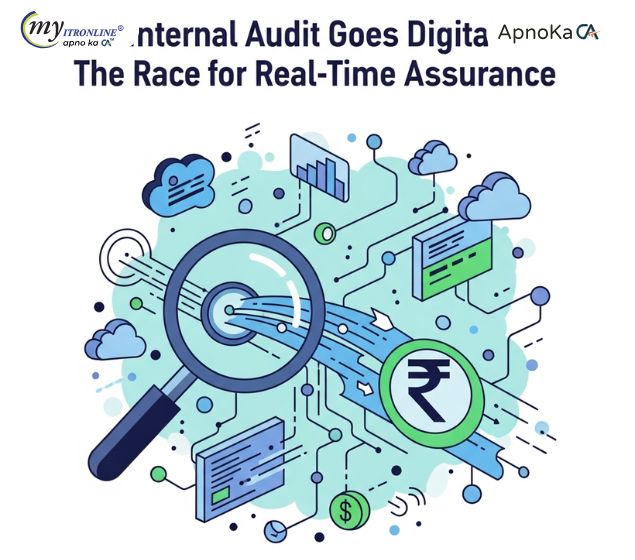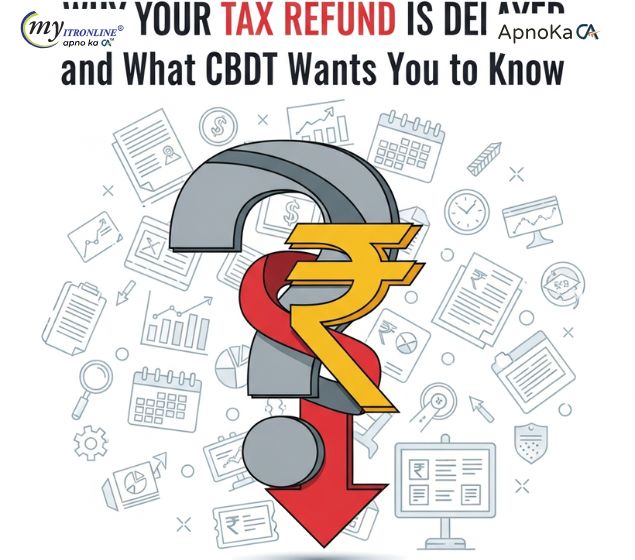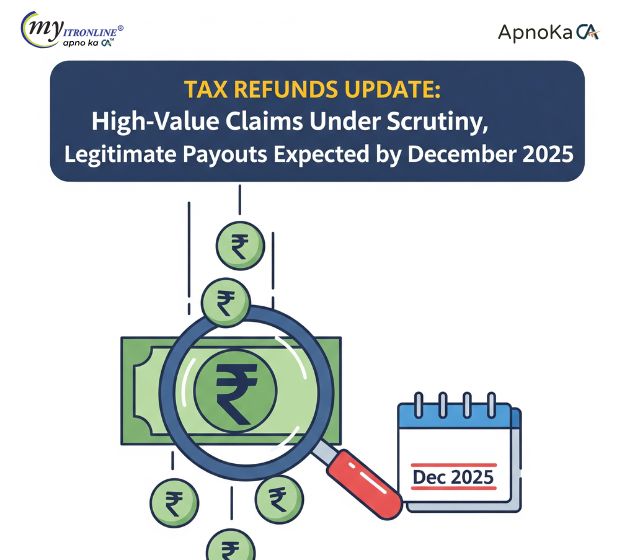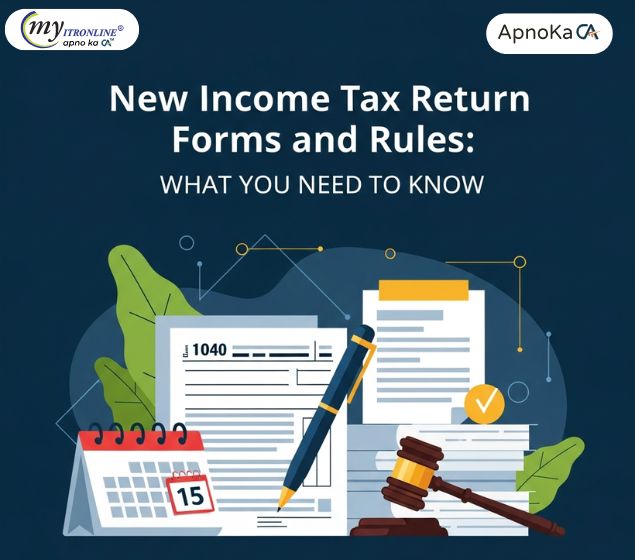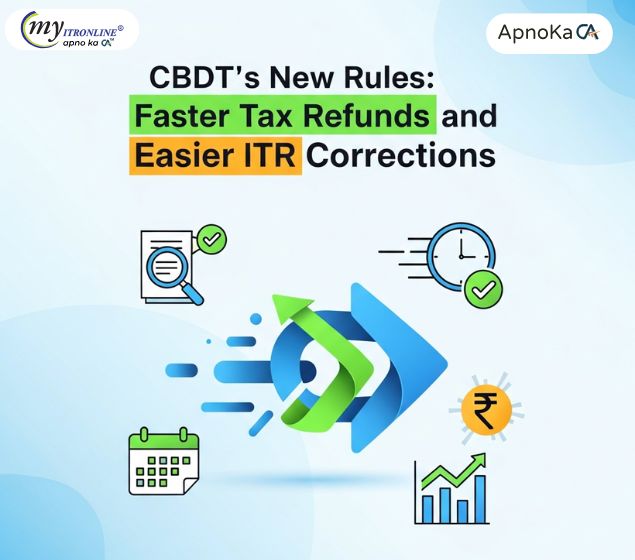Missed 80C? Act Fast! Your Guide to Filing a Revised Income Tax Return
This blog post provides a comprehensive guide for taxpayers who have missed claiming eligible deductions under Section 80C of the Income Tax Act, 1961, in their original Income Tax Return (ITR). It explains the importance of Section 80C, the concept of a Revised ITR, and offers a detailed step-by-step process for filing a revised return online. The article also emphasizes the significance of adhering to deadlines to avoid penalties and provides essential tips for a smooth filing experience, ensuring taxpayers can reclaim their rightful tax benefits
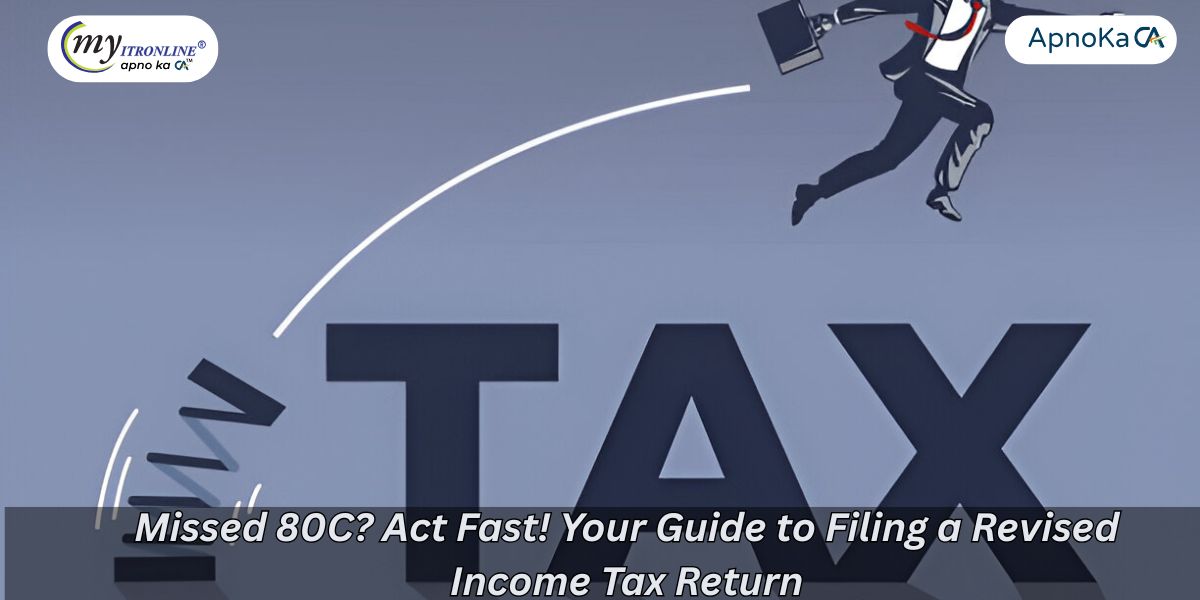
Have You Overlooked Tax Deductions Under Section 80C? Submit Your Revised ITR and Steer Clear of Penalties!
Tax time can feel chaotic with all the numbers, paperwork, and deadlines. It’s common for taxpayers to unintentionally miss out on claiming eligible deductions, particularly under Section 80C of the Income Tax Act, 1961, which provides significant tax-saving options.
If you've already submitted your Income Tax Return (ITR) and have just realized that you neglected to claim crucial deductions such as your provident fund (PF) contributions, life insurance premiums, Public Provident Fund (PPF) investments, or ELSS mutual funds, don’t worry! The positive news is that the Income Tax Department permits you to resolve such mistakes by filing a Revised Income Tax Return.
This blog will walk you through the steps required to file a revised ITR for missed Section 80C deductions and emphasize the importance of acting promptly to evade penalties.
Why is Section 80C Important?
Section 80C serves as a fundamental aspect of tax planning in India, allowing a maximum deduction of up to ₹1.5 lakh from your overall income. This can greatly decrease your taxable income and, in turn, your tax obligation. Common investments and expenses eligible for deductions under Section 80C include:
- Provident Fund (PF): Employee contributions to Employees' Provident Fund (EPF).
- Public Provident Fund (PPF): Contributions made to a PPF account.
- Life Insurance Premium: Premiums paid for life insurance policies for yourself, your spouse, or children.
- Equity Linked Savings Scheme (ELSS): Investments in ELSS mutual funds.
- Home Loan Principal Repayment: The principal amount of your home loan EMI.
- Children's Tuition Fees: Tuition fees paid for up to two children.
- Fixed Deposits (Tax-Saver): Specific 5-year tax-saving fixed deposits.
- National Savings Certificates (NSC): Investments in NSCs.
- Sukanya Samriddhi Yojana (SSY): Contributions to SSY for a girl child.
- Senior Citizen's Savings Scheme (SCSS): Investments in SCSS.
Overlooking these deductions may result in you paying more tax than you are legally obligated to.
What is a Revised ITR, and Why Should You File One?
A Revised ITR, filed under Section 139(5) of the Income Tax Act, enables taxpayers to amend any mistakes or omissions made in their initial return. This provision is designed as a taxpayer-friendly option that encourages accurate tax reporting.
Reasons to submit a Revised ITR:
- Overlooked Deductions/Exemptions: This is the most prevalent reason, as previously mentioned.
- Incorrect Income Reporting: Incorrectly reporting your income, whether under or over.
- Mistakes in Personal Information: Errors such as wrong bank details, addresses, etc.
- Modifications in Financial Transactions: Any financial activities that weren't accurately recorded in the initial return.
- Correcting Errors: Simply amending any genuine errors made in the original filing.
Submitting a revised return guarantees that your tax assessment is grounded in complete and precise information, enabling you to take advantage of all eligible tax benefits.
Deadline for Submitting a Revised ITR
For the Financial Year 2024-25 (Assessment Year 2025-26), the deadline to file a revised ITR is December 31, 2025, or prior to the conclusion of the assessment, whichever comes first. It is vital to stick to this deadline to prevent any further issues.
Step-by-Step Instructions for Filing a Revised ITR Online
The process of filing a revised ITR online is quite simple. Follow these steps:
- Collect Required Documents:
- Your original ITR Acknowledgment Number.
- Proofs for the missed Section 80C deductions (e.g., receipts for life insurance premiums, PPF passbook, ELSS statements, home loan statements).
- Form 16 (if you are salaried).
- Bank statements.
- PAN Card and Aadhaar Card.
- Access the Income Tax e-Filing Portal:
- Go to the official e-Filing portal of the Income Tax Department (incometax.gov.in).
- Log in with your PAN/Aadhaar number, password, and captcha code.
- Find the Option to File a Revised Return:
- After logging in, navigate to e-File -> Income Tax Return -> File Income Tax Return.
- Choose the relevant Assessment Year for which you’re submitting the revised return (e.g., AY 2025-26 for FY 2024-25).
- Select Filing Type as "Revised Return":
- Choose the same ITR Form used in your original submission (e.g., ITR-1, ITR-2).
- Under Filing Type, select "Revised Return".
- You will need to input the Acknowledgment Number from your original ITR. This is necessary to associate your revised return with your first filing.
- Implement Necessary Corrections:
- The portal will automatically fill in most of your details from the original return.
- Carefully go to the section requiring changes, particularly the Deductions section, and update your Section 80C claims.
- Make sure all new entries are accurate and verified against your proofs.
- Check all other sections to confirm that no new errors have been introduced.
- Validate and Submit:
- After correcting the information, click on the Validate button to identify any errors or missing data.
- Once validated, proceed to confirm the summary of your return.
- If there is any extra tax liability due to the revision (e.g., if you initially overclaimed deductions and are now correcting them, or if you had under-reported income), ensure the tax is paid prior to filing the revised return.
- Hit Submit.
- E-Verify Your Revised ITR:
- Similar to your original ITR, it’s essential to e-verify your revised return within 30 days of filing. Without e-verification, your return will be deemed invalid.
- Typical e-verification methods include Aadhaar OTP, Net Banking, Electronic Verification Code (EVC) through your bank account, or by mailing a physical copy of ITR-V to CPC, Bengaluru.
- Save the Acknowledgment:
- Following successful submission and verification, download the acknowledgment (ITR-V/Acknowledgment) for your records. This serves as evidence of your revised filing.
Avoiding Fines
Timely submission of a revised ITR for missed deductions can help you evade potential fines and complications.
- No Direct Penalty for Revised ITR: If you file a revised return within the prescribed due date (December 31 of the assessment year), there's no penalty levied specifically for revising the return. The purpose of Section 139(5) is to allow taxpayers to correct genuine mistakes.
- Consequences of Not Revising (if applicable): If the missed deductions led to under-reporting of income in your original return (e.g., if you had incorrectly claimed a higher exemption or deduction), and this error is caught by the Income Tax Department during assessment, you could face:
- Interest under Section 234B and 234C: For default in payment of advance tax or deferment of advance tax.
- Penalty for Under-reporting of Income: Under Section 270A, a penalty of 50% of the tax payable on under-reported income can be levied. In cases of misreporting of income, this penalty can go up to 200%.
- Updated Return (ITR-U): If you miss the deadline for filing a revised ITR (December 31), and you need to declare additional income or reduce your tax liability (though ITR-U cannot be used to reduce tax liability or claim a refund), you might still have the option to file an Updated Return (ITR-U) under Section 139(8A). However, this comes with an additional tax penalty:
- 25% of the additional tax and interest if filed within 12 months from the end of the relevant assessment year.
- 50% of the additional tax and interest if filed between 12 and 24 months from the end of the relevant assessment year.
(As per recent amendments, this window has been extended to 48 months, with higher penalties of 60% and 70% for filing between 24-36 months and 36-48 months respectively).
Therefore, it's always advisable to file a revised return as soon as you discover any error or omission to avoid higher penalties and ensure compliance.
Essential Tips
- Be Detailed: Carefully verify all numbers and information in your amended ITR prior to submission.
- Keep Documentation: Preserve all proof of investments, receipts, and the acknowledgment of your revised return for future reference.
- Seek Expert Help: If your situation is complicated or if you have any doubts, it may be wise to consult a Chartered Accountant (CA) or tax expert.
- Stay Informed: Monitor any updates or modifications from the Income Tax Department regarding ITR filing deadlines.
Conclusion
Overlooking tax deductions can be disappointing, but the Indian tax system allows for corrections. By grasping the process of submitting a revised ITR under Section 139(5) and following the timelines, you can successfully claim the Section 80C deductions you missed, lower your tax liability, and maintain compliance with tax regulations, thereby preventing any unnecessary penalties. Don’t allow a small mistake to have significant consequences; take action quickly and file your revised ITR!
FILING YOUR INCOME TAX RETURN F.Y 2024-25 (A.Y. 2025-2026) WITH MYITRONLINE
The income tax filing deadline is right around the corner. If you haven’t filed yet, do it today with Myitronline! Avoid last minute rush and file your tax return today on MYITRONLINE in Just 5 mins.(www.myitronline.com)
If you are looking for eCA assistance to file your income tax return/ GST, you can opt for MYITRONLINE eCA assisted plan starting
Upload Salary Individual Form-16
If you have any questions with filing your tax return, please reply to this mail. info@myitronline.com OR call 9971055886,8130309886.
Note-All the aforementioned information in the article is taken from authentic resources and has been published after moderation. Any change in the information other than fact must be believed as a human error. For queries mail us at marketing@myitronline.com
Krishna Gopal Varshney
An editor at apnokacaKrishna Gopal Varshney, Founder & CEO of Myitronline Global Services Private Limited at Delhi. A dedicated and tireless Expert Service Provider for the clients seeking tax filing assistance and all other essential requirements associated with Business/Professional establishment. Connect to us and let us give the Best Support to make you a Success. Visit our website for latest Business News and IT Updates.
Leave a reply
Your email address will not be published. Required fields are marked *Share this article
Krishna Gopal Varshney, Founder & CEO of Myitronline Global Services Private Limited at Delhi. A dedicated and tireless Expert Service Provider for the clients seeking tax filing assistance and all other essential requirements associated with Business/Professional establishment. Connect to us and let us give the Best Support to make you a Success. Visit our website for latest Business News and IT Updates.
View articles








